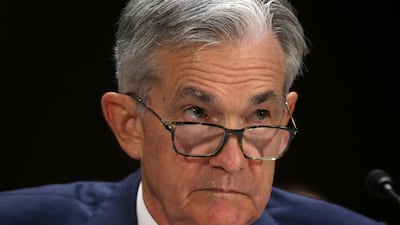Central bank politicisation has been a growing concern to financial markets for some time, but it is mostly in emerging markets that this has been a serious source of worry. Now the sense is growing that in an increasingly populist world the bastions of the global monetary system such as the Federal Reserve and the European Central Bank may no longer be immune to such pressures, which could have potentially damaging consequences for the world economy.
Many emerging markets have been long held in suspicion by the financial markets in part because of the tendency of their governments to interfere in the management of monetary policy. The Reserve Bank of India was the subject of such concerns last month when deputy governor Viral Acharya resigned six months before the end of his term, a move that was seen as connected to his vocal disapproval of what he considered to be government meddling with the RBI's work. This followed a similar dispute last year, culminating in the resignation of then RBI governor Urjit Patel.
Turkey has also been viewed cautiously because of the government's seeming attempts to influence monetary policy, with President Recep Tayyip Erdogan having long made his opposition to tight monetary policy clear. Thus it came as little surprise when Turkish Central Bank governor Murat Cetinkaya was removed from his post a week ago, amid soaring real interest rates following a slower-than-expected inflation print in June.
Now it increasingly seems that institutions such as the Fed and the ECB could also be influenced by their political 'masters'. The latest evidence of the Fed's malleability came last week, when chair Jerome Powell signalled the likelihood of a rate cut in July, having previously kept his options open and resisted pressure from the White House for an immediate move.
This is not to say there are not credible reasons for the Fed to ease monetary policy, with Mr Powell sounding concerns over trade tensions, poor business sentiment and sluggish inflation and wage growth, which he saw as overriding the positive jobs data in June. However, with the US still far from recession the speed with which the Fed has turned this year from advocating rate hikes to rate cuts is somewhat alarming, happening just as US President Trump has piled pressure on the institution and on Mr Powell personally by threatening to fire him.
Mr Powell reaffirmed the independence of the Fed in his latest testimony and stated that he would serve to the end of his four-year term. But it is almost certain that in deciding to cut interest rates later this month Mr Powell will face even more pressure from Mr Trump to be more aggressive in cutting rates, especially heading into an election year in 2020.
The ECB has been caught in a different kind of politicisation seeing its future leader Christine Lagarde appointed as a result of political bargaining at the top of the EU, where jobs are often traded and bartered in return for key appointments elsewhere. Only last month it was thought likely that the ECB presidency would go to Bundesbank chief Jens Weidmann, who has strong credentials for the role, following Mario Draghi and Jean-Claude Trichet who both also enjoyed strong credibility as central bankers. While Ms Lagarde cannot be said to be unqualified for the job, her experience as a finance minister and at the IMF would seem to make her more likely to steer monetary policy in a dovish direction.
But why should it matter that central banks remain independent and not pressured by politicians? The answer lies with the bond markets. If there is even a perception that a central bank is reacting to political pressure rather than just the data, then when inflation does start to rise the chances are that long-term bond rates will need to move much higher than is necessary to curb it, having damaging consequences for the economy.
As former RBI deputy governor Acharya put it: “Governments that do not respect central bank independence will sooner or later incur the wrath of financial markets, ignite economic fire and come to rue the day they undermined an important regulatory institution.”
Tim Fox is chief economist & head of research at Emirates NBD


